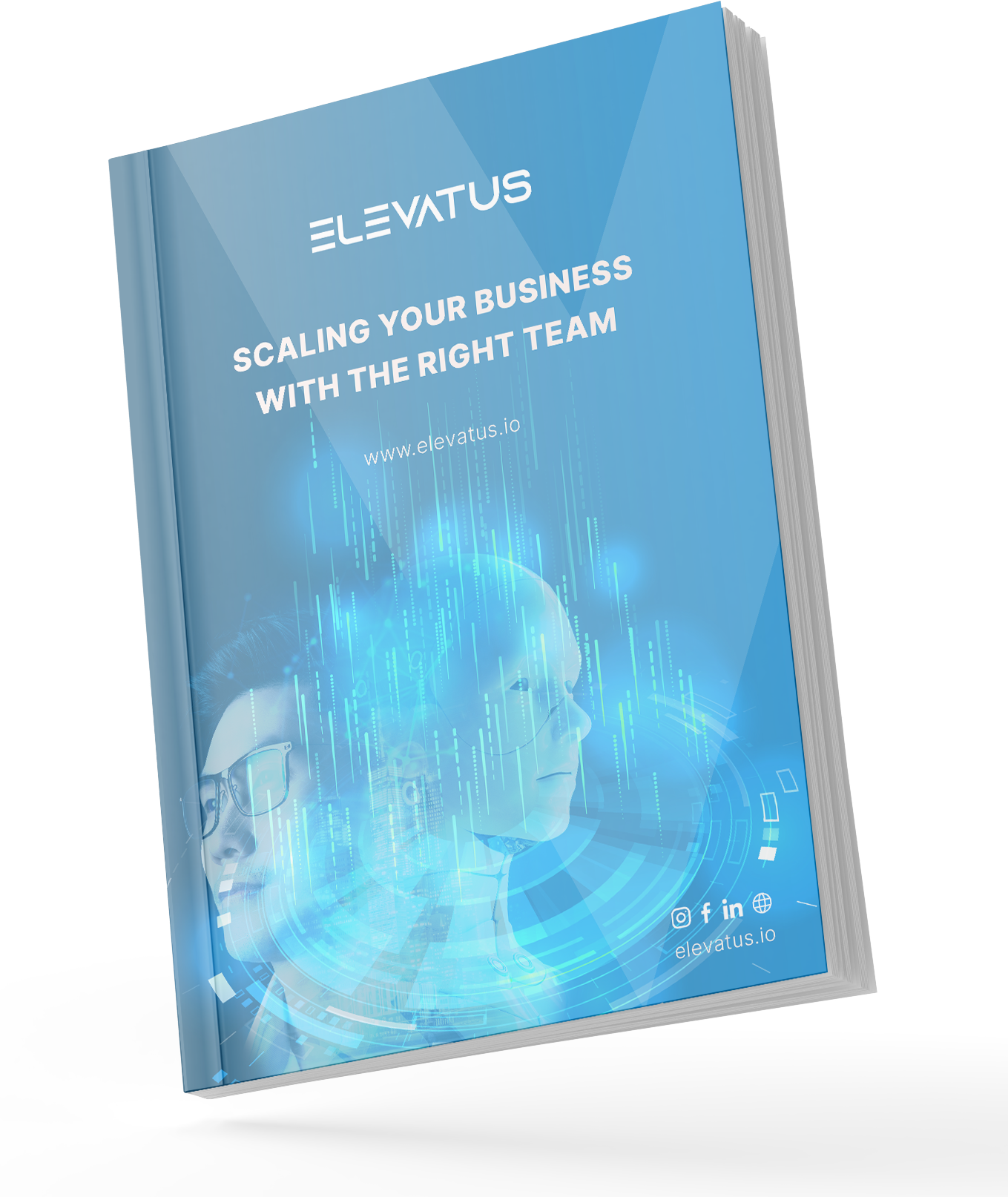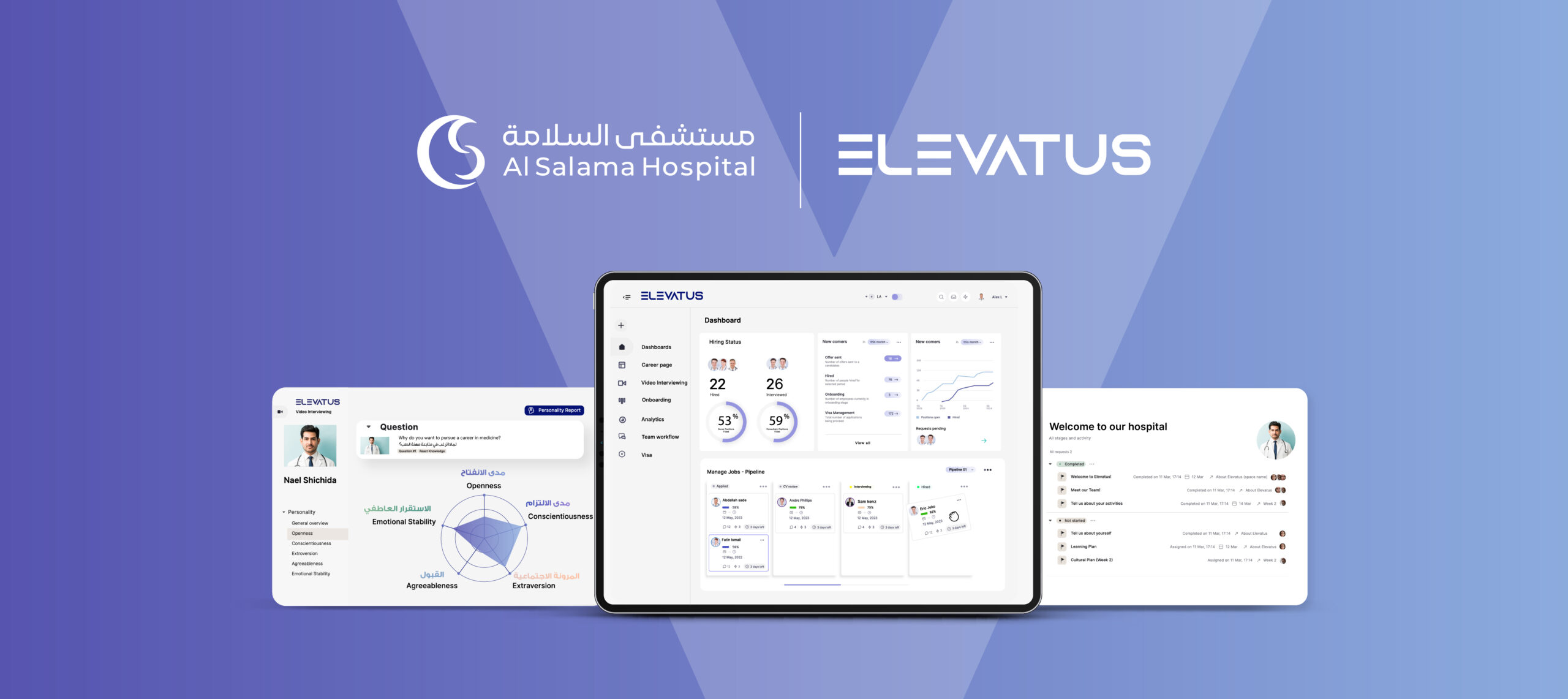
Recruitment Software
Maximizing Ethical Standards and Compliance Through Cutting-Edge Recruitment Technology
February 15, 2024



Kiran Kazim
Content Writer
Ever wondered how to make the recruitment process not just faster, but fairer and more transparent?
What if technology could ensure that every candidate gets a fair shot, and every hiring decision is made with the utmost integrity? Imagine a world where recruitment tools do more than just simplify processes—they transform them, embedding ethical standards and legal compliance into every step.
In this post, we’re diving deep into how the integration of recruitment technology isn’t just about efficiency; it’s about fundamentally changing the way we hire, for the better.
Join us as we uncover how maximizing ethical standards and compliance through recruitment technology is revolutionizing the art of finding the right talent.
Test & evaluate key skills in seconds
Scaling up? Assessing remotely? Evaluate top performers with fair and secure video assessment interviews that take your screening to the next level.
Request a free demoTable of Contents
Ethics & Technology in Recruitment


The balance between innovation and integrity is more crucial than ever, especially in a world where 69 percent of job seekers would reject a job offer from a company with a bad employer reputation. With the rapid advancement of recruitment technology, organizations are finding themselves at the crossroads of efficiency and ethics. The importance of ethics and compliance in recruitment cannot be overstated; they form the backbone of trust between candidates, employees, and employers, shaping the reputation and success of organizations. Ethical hiring practices ensure fairness, diversity, and inclusivity, while compliance with legal standards safeguards against discrimination and other legal pitfalls.
When used thoughtfully, recruitment technology becomes a revolutionary force in hiring. Technologies like AI for recruiting, applicant tracking systems, and various recruitment software can transform the hiring landscape by making it fairer for everyone. They help eliminate unconscious biases, creating an even playing field where every candidate has an equal opportunity. Plus, these tools can automatically ensure that job postings, candidate screenings, and interviews all adhere to legal and ethical guidelines, reducing the need for constant manual checks.
The arrival of new tech in recruitment opens amazing possibilities for improving how candidates experience the whole hiring process, from the moment they spot a job ad on a board or career site, all the way to potentially getting the job. By making everything smoother and cutting out biases, these technologies don’t just speed things up; they make sure the process is fair and show that the company values equality and respect.
This is super important nowadays, as the way a company is seen can hugely affect whether someone decides to work there. With the recruitment world constantly changing, mixing ethical practices with the latest tech is leading us into a new recruitment era. Here, being fair, efficient, and sticking to the rules isn’t just a nice thought—it’s happening, and it’s making companies more attractive to the best talent out there.
For example, EVA-SSESS is an on-demand and unbiased AI video interviewing software that enables companies to easily assess, hire, and build talented workforces. With EVA-SSESS, you can build dynamic pipelines and workflows that take your assessments to the next level – all while showcasing your incredible employer brand. On top of everything, it helps you mitigate bias and make the first round of screening 90% faster, making the hiring process super transparent!
Building Blocks for a Fairer Future with Ethical Recruitment


At the heart of every respected company is a strong commitment to ethical hiring. This goes beyond just following the law; it’s about valuing fairness, transparency, and inclusivity. These qualities are not just moral choices; they’re strategic ones that help shape a modern, ethical workplace that attracts top talent and builds a positive reputation.
Fair hiring means judging candidates strictly on their skills and fit for the role, avoiding any bias. AI technology like EVA-SESS in recruitment has been key in making this a reality, offering unbiased assessments of candidates’ skills. EVA-SESS’s ability to set up unique and tailored video assessments enhances this even further.
By customizing interview questions, setting time limits, and allowing a number of retakes, all within a framework that showcases the employer’s brand, candidates get to experience a hiring process that’s not only fair but also deeply personalized. This feature ensures that from their first interaction to the final hiring stages, candidates enjoy a fully branded experience that focuses strictly on their abilities, making the recruitment process unbiased.
Transparency during the hiring process means keeping candidates informed every step of the way, from how they’ll be evaluated to the stages of hiring and giving timely feedback. This openness builds trust, making candidates feel valued. For example, EVA-SESS can make maintaining this transparency easier, ensuring candidates are always in the loop. It enables you to send real-time notifications to candidates and alert them of their status in the hiring or assessment process.
Inclusivity means bringing together diverse perspectives, experiences, and backgrounds, enriching the company culture, and sparking innovation. Recruitment technology helps reach a broader talent pool and make job ads accessible to all, supporting a more inclusive hiring process. According to the Glassdoor survey, embracing inclusivity not only meets legal requirements but also matches what today’s job seekers are looking for in an employer. For example, using scientific personality assessments in EVA-SSESS, you can easily assess basic competencies, predict true potential, discover skillsets beyond the resume, and stay true to inclusivity.
Together, these ethical principles guide companies in not just filling positions, but in doing so respectfully and valuably for every candidate. By embedding fairness, transparency, and inclusivity into recruitment, companies not only enhance their reputation and attract better talent but also contribute to a more equitable society. Leveraging recruiting technology with these values in mind is essential, ensuring the tools we use genuinely improve the hiring process for everyone involved.
Leveraging Tech for Fairness in Ethical Recruitment


Technology is a double-edged sword in the hiring world: it boosts efficiency and lights the way for ethical hiring. As companies work to make their recruitment methods more ethical, tech plays a key role in ensuring fairness, transparency, and inclusivity. Let’s dive into some hands-on strategies that use recruitment tech stack to stick to and boost these ethical values in the hiring process.
Crafting Fairness with AI for Bias Reduction
AI’s role in making hiring fairer is huge—it’s like taking a giant step towards a world where everyone gets a fair shot at job opportunities. Research from Harvard Business Review shows that AI can look at all candidates fairly, without the usual human time crunch that often leads to biased shortcuts. AI digs into resumes and applications, focusing on skills, experience, and potential, not personal details that shouldn’t matter but often do, like someone’s age, gender, ethnicity, or where they grew up. By zeroing in on what counts—professional qualifications—AI is helping to knock out those unconscious biases that have tipped the scales in hiring for too long.
It’s pretty surprising to hear that lots of companies only look at a tiny slice of the millions of people applying for jobs, leaving a huge number of potential stars out of the running. This fact highlights the need for those in tech and law to work together, creating tools and rules that make sure no candidate is overlooked. With AI, we have the chance to review every applicant fairly and without bias, boosting not just how efficient hiring is but also making it more ethical and inclusive. This teamwork between tech advancements and legal frameworks is key to changing the future of hiring into one where fairness and equal chances for everyone are at the heart.
The success of using AI to bring fairness into hiring depends on how carefully it’s set up and used. Companies need to pick AI tools for recruiting that are specially made to ignore things like a person’s background info that doesn’t relate to their job skills or performance. This means the AI skips over stuff like names that could suggest someone’s race or ethnicity, dates that might give away their age, or addresses that could hint at their economic background, focusing only on what really matters for the job.
But getting AI to be truly unbiased is an ongoing process. It needs regular check-ups and tweaks to make sure it doesn’t accidentally pick up any unfair biases from the data it learns from. If the data is biased, the AI might end up being biased too. So, keeping these systems up-to-date and in check is key to making sure they stay fair.
Scaling Your Business With The Right Team
Unveil the keys to business growth with precision. Learn how to scale smartly, tackle challenges, and optimize communication strategies in this eBook.
Download Now!

AI in recruitment can be a powerful way to fight against bias and make hiring more about merit, but it takes a lot of careful work and honesty. By sticking to these guidelines, companies can use AI not just to make hiring fairer but also to bring in a wealth of diverse talent, making their teams stronger and more varied.
Enhancing Candidate Experience by Using Transparent Processes
Transparency in recruitment processes is more than a best practice; it’s a fundamental element that fosters a positive relationship between candidates and organizations from the outset. The integration of recruitment technology, such as candidate relationship management (CRM) systems and applicant tracking systems (ATS), has revolutionized how transparency can be achieved and maintained throughout the hiring journey. These platforms serve as conduits for clear, timely, and direct communication with candidates, ensuring they are always in the loop regarding their application’s progress, what to expect next, and the decisions made at various stages.
The beauty of leveraging such technology lies in its ability to automate communications without sacrificing personal touch. Automated emails and notifications can be customized and sent out to provide feedback after interviews, updates on application status, and even tips for preparation for the next steps. This level of transparency removes the ambiguity and anxiety often associated with the recruitment process, making candidates feel valued and respected regardless of the outcome.
The efficiency brought about by CRM and ATS platforms in handling routine communications frees up valuable time for the recruiting team. This allows them to invest more effort into engaging with candidates on a deeper level, understanding their needs and aspirations, and providing personalized feedback. Such strategic engagement enhances the overall candidate experience and also strengthens the employer brand, signaling to potential candidates that the organization values open communication and feedback.
Unleashing the Future of the Candidate Experience
This approach to transparent processes extends beyond immediate benefits to candidates and hiring teams; it sets a precedent for the organizational culture, indicating a commitment to openness, respect, and constructive feedback. As candidates experience this level of transparency, they are more likely to view the organization positively, increasing their interest in joining the team and recommending the company to their networks, thus attracting more high-quality talent.
The role of recruitment technology in facilitating transparent processes is indispensable. By ensuring consistent, clear, and constructive communication, these technologies not only improve the candidate experience but also contribute to a positive employer reputation. Organizations that prioritize transparency in their recruitment processes are better positioned to attract, engage, and retain top talent, building a workforce that is both skilled and aligned with the company’s values.
Expanding Horizons with Diversity and Inclusion
Building a workplace that’s diverse and inclusive isn’t just the right thing to do—it’s a smart move for any organization. Recruitment technology is a key player in making this happen, turning the ideals of diversity and inclusion into real action within hiring strategies. By tapping into job boards for underrepresented groups, engaging across diverse social media, and connecting with broad professional networks, companies can throw their recruitment net much wider. This strategy opens doors to a diverse range of candidates, enriching the organization with varied perspectives and experiences.


“When AI tools are well designed, deployed, and monitored properly, the technology has the potential to mitigate discrimination and bias on a broader scale” – Eric Reicin, president and CEO of BBB National Programs
The role of language in recruitment can’t be overlooked either. Using tech to sift through job descriptions, ensuring they’re inviting to everyone, is a crucial step. These tools help weed out any words or requirements that might unintentionally turn away diverse candidates, laying the groundwork for a culture that values and welcomes difference right from the start. This not only makes the organization more attractive to a broader pool of talent but also helps to weave respect and inclusivity into the very fabric of the company.
Using analytics and reporting tools to keep an eye on diversity metrics is another strategic move. These tools provide a clear picture of how well diversity and inclusion efforts are working, pointing out both wins and areas that need a boost. The data collected helps guide better decisions, aligning hiring practices with diversity goals more effectively.
Assess thousands of applicants in a few clicks
Assess the skill sets and potential of applicants with automated video assessment interviews that are fair and secure.
Request a demoElevating Hiring Ethical Standards with Recruitment Technology


Technology is changing everything in making hiring fairer, more transparent, and more inclusive. When companies are serious about sticking to the highest ethical standards in their hiring, picking the right tech tools is key. As we dive deeper, we’ll explore how certain tech solutions are reshaping the way ethical hiring gets done.
AI Screening Tools
AI screening tools are reshaping the recruitment landscape, setting a new standard for fairness and objectivity in the hiring process. These smart tools use advanced algorithms to remove any personal details from candidate profiles—like names that might give away ethnicity, dates that could show age, or addresses that hint at someone’s socio-economic background. This makes sure that the first look at a candidate is all about their skills, qualifications, and what they can bring to the job. It’s a direct hit against unconscious biases that, in the past, have made hiring lean unfairly towards certain groups.
The effect of AI on making the screening process smoother and more just can’t be overstated. It opens the door equally for all candidates, judging them solely on their professional abilities. This not only evens out the playing field but also encourages a wider array of people to throw their hat in the ring, knowing they’ll get a fair shake.
A Balanced Perspective with Diversity and Inclusion in the Workplace
Pros:
- Diverse viewpoints
- Innovation boost
- Increased creativity
- Higher morale
- Expanded talent pool
- Enhanced company image
Cons:
- Interpersonal conflicts
- Implementation hurdles
- Resistance from staff
- Training demands
- Bias risks
Using AI tools also shows that a company is all in on hiring without biases. It’s a sign that they’re looking ahead, prioritizing diversity and inclusion not just because it’s the right thing to do but because it’s smart business. Diversity drives innovation and growth. So, in essence, AI screening isn’t just about smart technology; it’s a key player in the push towards more equitable and thriving workplaces.
Digital Interview Platforms
Digital interview platforms are changing the interview game for companies, making the whole process fairer and more consistent. By using these tech-savvy systems, companies can ask every candidate the same questions, in the same way, cutting down on the chances for personal biases to sneak in. Everyone gets the same shot, judged solely on their answers, not on someone’s gut feeling.
The magic really happens with algorithms that objectively look at the answers. These aren’t just any algorithms; they’re built to judge responses against clear-cut criteria, bringing impartiality to the process that’s hard to replicate in a traditional interview. This means candidates stand or fall based on what they can do and how well they fit the job, not on who they are or how they come across in person.
A Glassdoor survey from 2019 showed that over 77% of people in countries like the US, UK, France, and Germany really look into a company’s culture, and 79% examine its mission and purpose before applying for a job.
This method doesn’t just level the playing field; it also boosts how candidates see the company. Knowing they’re being assessed fairly enhances their experience and paints the company in a good light, showing a real commitment to diversity and inclusion. In short, digital interview platforms are a big leap towards making hiring not just more transparent and fair but also a better experience for everyone involved.
Analytics and Reporting Tools
Analytics and reporting tools are revolutionizing how companies fine-tune their hiring strategies, giving them a wealth of insights into how fair and effective their practices really are. Digging deep into the hiring process, these tools offer a crystal-clear, data-driven snapshot of what’s happening behind the scenes. They track everything from who’s applying to who’s getting hired, highlighting how inclusive those efforts are. This can spotlight trends or biases that need addressing, laying down a solid, fact-based groundwork for making things better.
With these analytics, companies can see not just where they’re getting it right, but also where they need to up their game. For example, if the data points to a lack of diversity in certain roles, it’s a wake-up call to rethink those hiring methods to be more welcoming. This analysis is gold for any organization serious about equality, pinpointing exactly where the hiring process might be missing out on great talent.
By tapping into analytics and reporting, hiring becomes a dynamic, ever-improving journey, constantly moving closer to the highest ethical standards. This cycle of continuous improvement means hiring practices don’t just meet legal and ethical requirements but actively work to create a more diverse and vibrant workplace.
Putting it all together—AI for unbiased screening, digital interviews for consistent fairness, and deep-dive analytics for ongoing improvement—these technologies equip companies to lead with ethics in recruitment. It’s about more than just meeting standards; it’s a progressive move towards attracting a rich mix of talent. And by doing so, companies don’t just build a workforce; they enrich their culture with a spectrum of viewpoints and experiences, paving the way for a more inclusive and equitable future in hiring.
Streamlining Compliance How Recruitment Technology is Changing the Game


Streamlining compliance was never this easy in recruitment, thanks to technology. Innovative tools are revolutionizing how companies ensure legal and ethical standards are met, from automated legal checks in job descriptions to bias-preventing algorithms in candidate selection. This evolution not only eases the compliance burden for HR but also fosters a fairer, more transparent hiring process. Let’s explore how recruitment technology is simplifying compliance and transforming the hunt for talent.
Automated Regulation Updates
One of the biggest perks of today’s recruitment technology is how it can keep up with legal changes all by itself. Think about it: laws around work, equal opportunities, and other rules can shift depending on where you are. These smart systems get this and adjust on the fly, making sure everything from your job ads to how you pick your next team member is up-to-date.
No more manual updates are needed, which means less chance of accidentally stepping over the line. It’s a win-win: companies can relax a bit knowing they’re doing things by the book, and candidates get a fair shot because the rules are always current.
Data Protection and Privacy
Nowadays, keeping candidate data safe and respecting privacy is a big deal. AI recruiting technology comes packed with features like data encryption and tools to manage consent, making sure everything lines up with privacy laws like the GDPR. From the moment someone applies to when they’re hired, these systems keep their information locked down tight.
By handling the nitty-gritty of consent automatically and keeping personal data secure, these tools make it easier for organizations to stay on top of data privacy. It’s all about making sure candidate info is treated with the care and legality it deserves.
Exploring the Upsides and Downsides of Data Protection and Privacy
Pros:
- Enhanced Security Measures
- Regulatory Compliance Assurance
- Building Trust and Confidence
- Transparency in Handling Data
- Safeguarding Confidential Information
- Strengthening Reputation
- Empowering User Control
Cons:
- Potential Intrusions
- Increased Operational Complexity
- Financial Implications
- Heightened Risk of Breaches
- Legal Liability Concerns
- Overhead Costs
Compliance Checklists and Audits
Another game-changer in recruitment tech is how it handles compliance checks automatically. These systems come with detailed checklists and can go through the whole hiring process to spot any compliance red flags before they turn into real problems. It’s like having a proactive watchdog that helps fix things early, cutting down the chances of running into legal trouble. This is super handy for big companies or those working across different areas, where the rules can change a lot and vary from place to place. Automated audits make it a lot easier to keep up and stay out of hot water.
Build fully customizable & branded assessments
Create tailored pipelines that meet your unique assessment needs. Use triggers that show you at a glance the status of each applicant, at any stage.
Request a demoReporting and Documentation
Staying legally compliant means being able to show your work, like having detailed reports and accurate records ready for audits. Recruitment technology makes this a breeze with features that automatically whip up the reports you need and keep track of every single step in the hiring process.
Whether it’s job ads, applications, interviews, or the final hiring call, everything gets logged and is easy to find. This not only comes in handy during audits, showing you’ve played by the rules, but it also lets companies look back over their hiring habits to spot trends and areas where they can do even better, making sure they’re not just meeting the legal standards but going above and beyond.
Final Thoughts
Embracing recruitment technology is key to pushing ethical standards and compliance to the forefront of hiring practices. These tools offer a streamlined approach that guarantees fairness, transparency, and adherence to laws, making the recruitment process smoother and more secure. By integrating these innovations, companies can enhance their hiring strategies and build a workplace culture that values inclusivity and compliance. Ultimately, leveraging technology in recruitment is about setting a higher standard for integrity and fairness in the modern workplace.
Looking to make your first round of screening first round of screening 90% faster? Look no further!
Learn how the world’s leading companies and brands rely on EVA-SSESS to build customizable assessments, detect ideal keywords, rank applicants, filter out correct answers, and effortlessly assess the skills that are tough to measure. Request your free demo now!
Frequently Asked Questions
How can organizations ensure their recruitment technology tools are aligned with ethical standards?
Organizations can ensure their recruitment technology tools are aligned with ethical standards by conducting regular audits of their tools and processes, engaging with diverse stakeholder groups to gather feedback, and choosing technology partners that prioritize ethical considerations and compliance in their product development. Additionally, providing training for staff on ethical recruitment practices and the responsible use of technology can help maintain alignment.
What measures can be taken to continuously monitor and improve the ethical impact of recruitment technology?
To continuously monitor and improve the ethical impact of recruitment technology, organizations can implement ongoing evaluation processes, including the use of analytics to track diversity and fairness metrics, regular reviews of AI decision-making criteria for biases, and staying updated with legal and ethical guidelines in recruitment practices. Establishing a feedback loop with candidates and employees to gather insights on their experience with the recruitment process can also offer valuable perspectives for improvement.
What future technologies hold the promise of further advancing ethics and compliance in recruitment?
Future technologies that hold promise for further advancing ethics and compliance in recruitment include more advanced AI and machine learning algorithms that can better identify and eliminate biases, blockchain for secure and transparent record-keeping, and virtual reality (VR) for more immersive and equitable assessment and interviewing processes. These technologies, combined with a commitment to ethical principles, could significantly enhance fairness and inclusivity in recruitment.
Turn top talent to employees fast
Hire, assess, onboard and manage top talent for every job. See how Elevatus streamlines everything; from acquire to new hire.
Request a demoAuthor



Kiran Kazim
Don't miss a thing!
Stay one step ahead. Subscribe and get the latest updates, news, and insights from Elevatus straight to your inbox.

![Balancing the Pros and Cons of Online Recruitment With the Right Tools [2024 Guide] | Elevatus An image of an HR manager defining the purpose of online recruitment to a new hire](https://www.elevatus.io/wp-content/uploads/2023/12/5-4.png)




